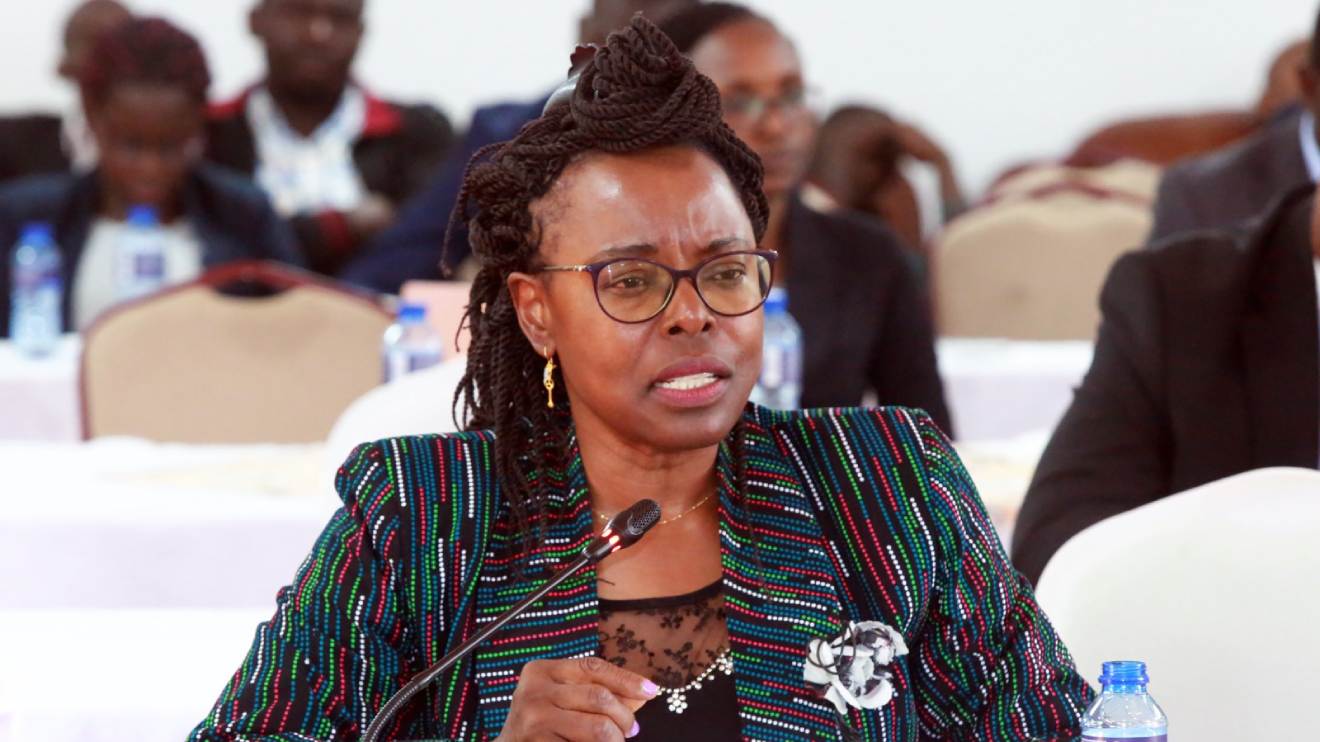The Controller of Budget (CoB), Margaret Nyakang’o, has raised concerns over the reallocation of billions of shillings meant for development projects towards settling pending bills and administrative costs.
Nyakang’o appeared before the National Assembly Finance Committee chaired by Molo MP Kuria Kimani to brief the team on the Budget Review Implementation Report for the first half of the 2023/24 financial year.
During her address, Nyakang’o highlighted several instances of concerning reallocations.
This included the Treasury approving the transfer of Sh9.8 billion from the National Housing Corporation (NHC) towards the State Department for Housing for payment of pending bills related to affordable housing, social housing, and police housing projects.
Further concerns were raised regarding the reallocation of Sh217 million from the development budget of the State Department for Correctional Services to settle pending bills.
Read More
Additionally, the CoB flagged the transfer of Sh75 million in loan revenue from the development budget of the State Department for Crop Development towards daily subsistence allowance for staff deployed to fight locusts.
“In the first half of the current financial year, where did we have locusts? Where were locusts reported between July to December 2023?” questioned Kimani.
He expressed worry that these reallocations seem to prioritize spending on administrative costs and pending bills over crucial development projects.
Nyakang’o elaborated on her efforts to obtain clarification on the reallocation of Sh9.8 billion from the NHC. She revealed writing two letters to the Principal Secretary for Housing seeking an explanation but has yet to receive a response.
“It should be noted that I do not approve reallocation of budgets but I approve withdrawals from the Consolidated Fund once the reallocations are approved by the Treasury,” Nyakang’o explained.
She further emphasized the limitations of her role, stating, “Once the Treasury presents the reallocations as a schedule and I approve the withdrawals from the Consolidated Fund, I have no visibility on what is actually paid for.”
Nyakang’o pointed out that the Public Finance Management Act allows for the reallocation of funds within a State Department vote but with a limitation of not exceeding 10 per cent.
She also highlighted Articles 226, 227, 228 and 229 of the Constitution, outlining the designated roles for budget approvals and spending oversight.
The Committee chairman expressed concern that these reallocations might be a case of “budgeted corruption,” where funds are deliberately shifted from areas with stricter spending controls to those with easier avenues for expenditure.
Nyakang’o’s report sheds light on the potential misuse of public funds and raises questions about transparency and accountability within government spending.
The National Assembly Finance Committee is likely to delve deeper into these concerns in the coming days.









 shares a light moment with the company's Group CEO Dr Patrick Tumbo (right) at a past event-1758121528.jpeg)
-1758116028.jpeg)

